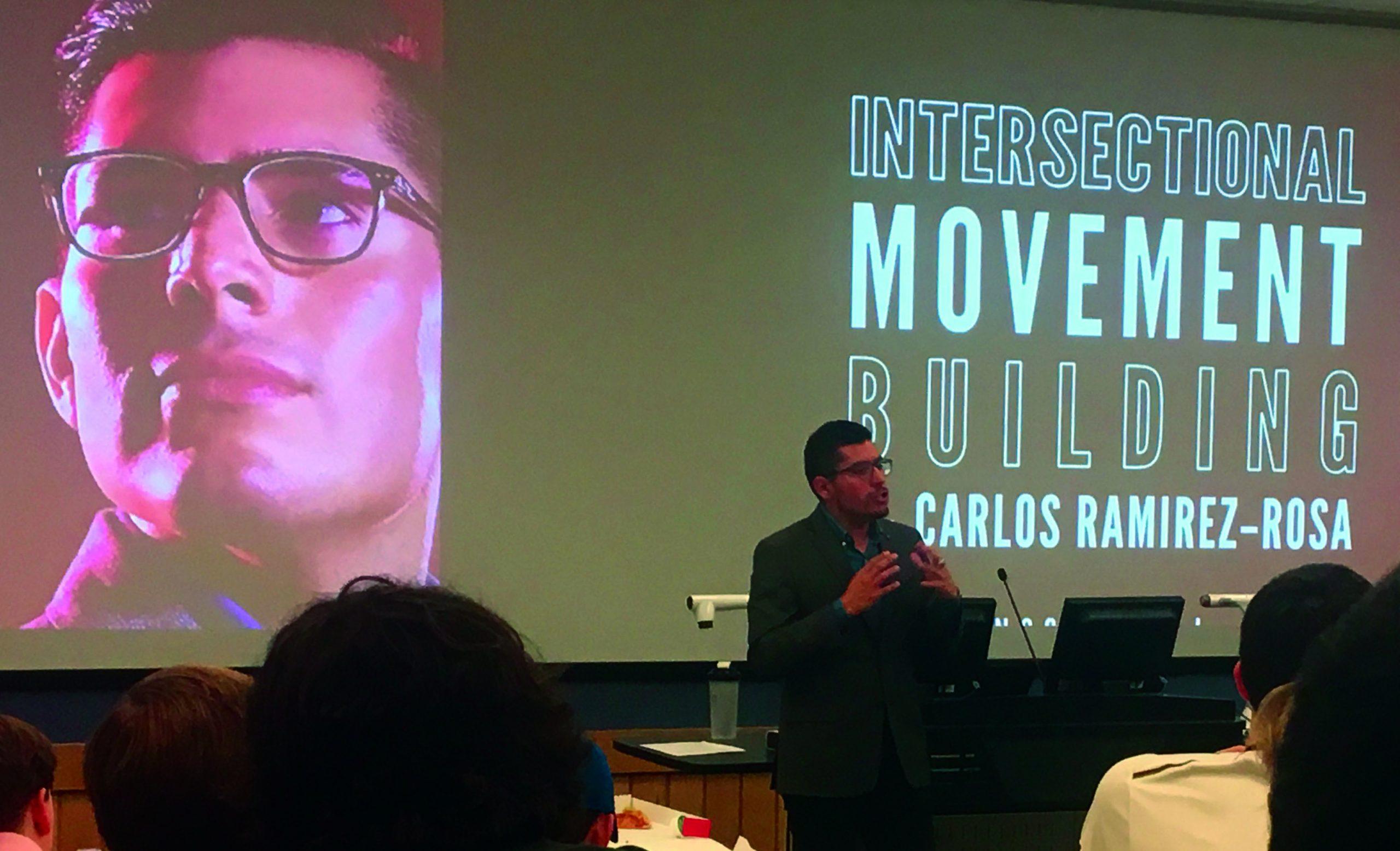Janna Fitzgerald, Features Editor
Alderman Carlos Ramirez-Rosa for Chicago’s 35th ward met with the College Democrats, Asian Pacific American Coalition, PRIDE, NAACP, Feminist Led Activist Movement to Empower (FLAME), VegHeads and Student Environmental Action Coalition at Illinois State University and Illinois Wesleyan College Democrats on Monday, Nov. 6 to introduce his “Intersectional Movement Building” idea as a part of his colleges tour.
He is a self-identified socialist. He won the position with 67 percent of the vote in 2015, running against a 12-year incumbent. He was an elected Bernie Sanders delegate to the 2016 Democratic National Convention. He was named an “emerging power player” by Chicago Magazine in 2017.
Ramirez-Rosa explained that on a Great Society program, his parents were able to attend college free of charge. They graduated from college without debt. Their first job was as Chicago public school teachers. At 22 years old, they’re each earning a salary of $25,000 a year. The purchasing power of that money today is about $100,000.
“Because they were given those opportunities and that benefited my sister and me, my mother always made it clear that I had a debt to pay,” he said. “Since people had fought and struggled to get us where we were, so too did I have to fight and struggle to bring more people along to benefit from these same opportunities as well.”
He understood “people in power could use that power to uplift people, to make misery less, or they could use it to make things worse and to hurt people. And only by joining together can we make a difference.”
He worked with Congressman Luis Gutiérrez by starting a chapter of students in support of him when the congressman was running for mayor and actually working in his office for three years. “It was very worthwhile work. It was very fulfilling, but I still felt like I wasn’t addressing the core of the issues,” Ramirez-Rosa said.
“Here’s a member of congress that is claiming to be a champion of a community, but he’s not listening to the community he is claiming to be a champion of,” he said. “If we are going to change things in our society, we are going to have create programs to change the status quo.”
Ramirez-Rosa then worked with the Undocumented Immigrant Youth Justice League to strive to do more for the people in that community. Then the 12-year incumbent for the alderman position caught his attention.
“The 12-year incumbent was engaging in pay-to-play, meaning that if you gave him a campaign donation, he’d give you any zoning change you wanted,” he said. “While this man had been in office, 10,000 working class, mainly Latino residents had been pushed out and displaced by rising rents and by new luxury developments. And I started to get angry. And I started to say, who is going to run against this man?”
He decided he was the only one who was going to stand up against him. “When we count ourselves out, who wins? Those who are already in power, those who are connected to the status quo,” he said. “Billionaires never count themselves out; they’re not judging their capacity to govern. But those of us who have been marginalized do it all the time, because we believe the narratives and lies we’re told by those in power, because it helps keep them in power.”
“I serve them by being connected to the people that are building grassroots movements outside of the halls of power,” he said. He called himself a “movement elected official.”
“Like an ocean, when all those ‘drops of water’ come together, that movement creates change. As a movement elected official, I understand that I am only one tiny little drop, and the system we’re up against is a dam,” he said. “It’s man-made, and it’s created to use our labor and our energy to create wealth and create something unnatural. My job is to find a crack in that and report back to all the little drops of water that, ‘hey, there’s a crack right here.’”
He fostered a discussion about how do we accomplish this movement in a way that is both electoral and practices civil disobedience. “If we continue to be separated, we are going to continue to lose,” he said. “And we’ve been losing. And if we don’t start winning very soon, things are going to get a lot worse. It’s a long slog when you’re fighting for justice and fighting for social change.”


